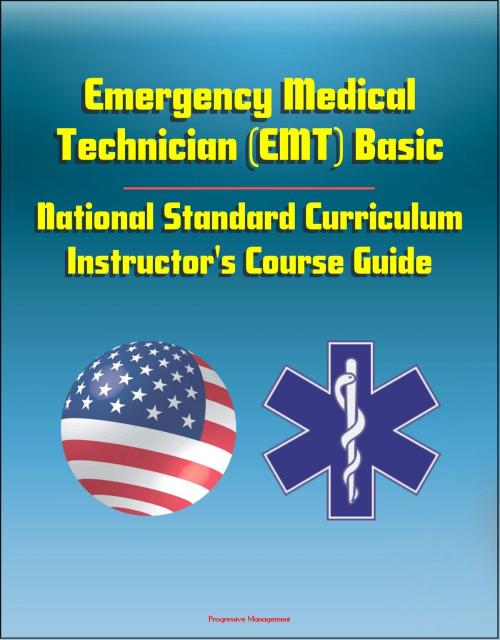Emergency Medical Technician (EMT) Basic: National Standard Curriculum Instructor's Course Guide
Nonfiction, Health & Well Being, Medical, Allied Health Services, Emergency Medical Services| Author: | Progressive Management | ISBN: | 9781301652891 |
| Publisher: | Progressive Management | Publication: | September 8, 2012 |
| Imprint: | Smashwords Edition | Language: | English |
| Author: | Progressive Management |
| ISBN: | 9781301652891 |
| Publisher: | Progressive Management |
| Publication: | September 8, 2012 |
| Imprint: | Smashwords Edition |
| Language: | English |
This instructor's course guide has been designed and developed to assist the course coordinator, instructors, and others in planning, managing and teaching the Emergency Medical Technician-Basic: National Standard Curriculum. The goals and objectives of this curriculum are to improve the quality of emergency medical care.
This course is designed to instruct a student to the level of Emergency Medical Technician-Basic, formerly the EMT-Ambulance, who serves as a vital link in the chain of the health care team. It is recognized that the majority of prehospital emergency medical care will be provided by the EMT-Basic. This includes all skills necessary for the individual to provide emergency medical care at a basic life support level with an ambulance service or other specialized service. Specifically, after successful completion of the program, the student will be capable of performing the following functions at the minimum entry level:
Recognize the nature and seriousness of the patient's condition or extent of injuries to assess requirements for emergency medical care; Administer appropriate emergency medical care based on assessment findings of the patient's condition; Lift, move, position and otherwise handle the patient to minimize discomfort and prevent further injury; and, Perform safely and effectively the expectations of the job description.
It is obvious that EMT-Basics provide a service in an environment requiring special skills and knowledge in such areas as communications, transportation, and keeping records. They also serve as liaisons with other emergency services. This course provides an introduction to these concepts. Individual orientation to the specific systems and services with which the EMT-Basic will be affiliated is necessary to achieve a full level of competency.
MODULE 1 Preparatory; MODULE 2 Airway; MODULE 3 Patient Assessment; MODULE 4 Medical/Behavioral Emergencies And Obstetrics/Gynecology; MODULE 5 Trauma; MODULE 6 Infants And Children; MODULE 7 Operations; MODULE 8 Advanced Airway (Elective).
This instructor's course guide has been designed and developed to assist the course coordinator, instructors, and others in planning, managing and teaching the Emergency Medical Technician-Basic: National Standard Curriculum. The goals and objectives of this curriculum are to improve the quality of emergency medical care.
This course is designed to instruct a student to the level of Emergency Medical Technician-Basic, formerly the EMT-Ambulance, who serves as a vital link in the chain of the health care team. It is recognized that the majority of prehospital emergency medical care will be provided by the EMT-Basic. This includes all skills necessary for the individual to provide emergency medical care at a basic life support level with an ambulance service or other specialized service. Specifically, after successful completion of the program, the student will be capable of performing the following functions at the minimum entry level:
Recognize the nature and seriousness of the patient's condition or extent of injuries to assess requirements for emergency medical care; Administer appropriate emergency medical care based on assessment findings of the patient's condition; Lift, move, position and otherwise handle the patient to minimize discomfort and prevent further injury; and, Perform safely and effectively the expectations of the job description.
It is obvious that EMT-Basics provide a service in an environment requiring special skills and knowledge in such areas as communications, transportation, and keeping records. They also serve as liaisons with other emergency services. This course provides an introduction to these concepts. Individual orientation to the specific systems and services with which the EMT-Basic will be affiliated is necessary to achieve a full level of competency.
MODULE 1 Preparatory; MODULE 2 Airway; MODULE 3 Patient Assessment; MODULE 4 Medical/Behavioral Emergencies And Obstetrics/Gynecology; MODULE 5 Trauma; MODULE 6 Infants And Children; MODULE 7 Operations; MODULE 8 Advanced Airway (Elective).















